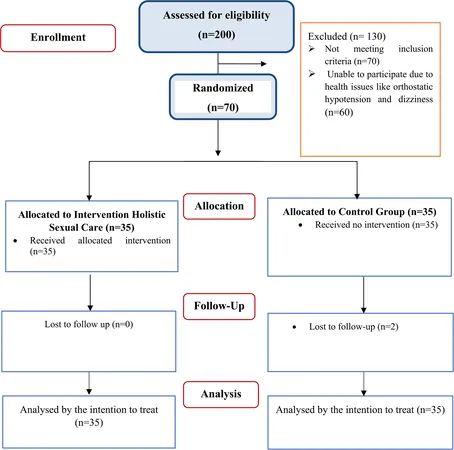
Discover the Mediterranean Diet: A Heart-Healthy Path to Wellness and Weight Loss
2024-12-31
Author: Liam
Are you ready to revolutionize your health and lifestyle in 2024? The Mediterranean diet has just been named 'the best diet of 2024' by US News and World Report, and it's not just a fad! The American Heart Association's latest guideline emphasizes its powerful benefits in reducing stroke risk. This nutrient-rich, nonrestrictive diet offers a deliciously healthy way to nourish your body while enjoying flavorful meals. Let’s dive into everything you need to know about this incredibly popular diet!
What is the Mediterranean Diet?
Originating from the traditional diets of countries bordering the Mediterranean Sea such as Italy, Greece, and Spain, the Mediterranean diet is centered on fresh, plant-based foods. It consists predominantly of: - Fruits and vegetables - Whole grains (like whole-wheat bread and pasta) - Nuts and legumes (such as chickpeas and lentils) - Fish and seafood - Lean poultry, with limited red meat - Olive oil as a primary fat source - Herbs and spices for flavor - Occasional glass of red wine (in moderation) This diet encourages the intake of minimally processed foods while steering clear of unhealthy fats and sugars.
The Green Mediterranean Diet: A Plant-Powered Twist
An intriguing variation that's gaining popularity is the Green Mediterranean Diet. This version pushes the boundaries of traditional eating by eliminating red and processed meats altogether, focusing strictly on a plant-based approach. Research indicates that adopting this green version can have even more significant benefits for heart health. A study conducted in 2021 highlighted how incorporating duckweed, green tea, and walnuts can provide additional nutrients beneficial for your cardiovascular system and longevity.
Why Choose the Mediterranean Diet?
This diet boasts a multitude of health benefits: - **Boosts Heart Health:** Studies repeatedly affirm the Mediterranean diet's role in reducing the risk of heart disease and stroke, primarily due to its lower saturated fat content compared to other diets. - **Enhances Brain Function:** Research published in 2021 shows that the Mediterranean diet may decrease the risk of Alzheimer’s disease and dementia while improving cognitive function as we age. - **Promotes Weight Loss:** If you're seeking to shed a few pounds, the Mediterranean diet can help you lose weight and maintain it. Research from 2020 found that those who lost significant weight on this diet were more likely to keep it off long term.
Practical Tips for the Mediterranean Diet
Starting on the Mediterranean diet is straightforward! Here are some daily recommendations: - Enjoy fish or seafood at least twice a week. - Drink plenty of water throughout the day. - Fill your plate with a wide variety of fruits, vegetables, whole grains, beans, and healthy fats like olive oil.
Foods to Include:
- Fatty fish (like salmon and tuna) - A variety of fresh vegetables and fruits - Moderate amounts of eggs and dairy - Whole grains (e.g., quinoa, brown rice) - Nuts and seeds - A small serving of dark chocolate
Foods to Limit:
Although there are no strict rules about what to avoid, it’s wise to limit: - Red meats - Sugary snacks and beverages - Highly processed foods
Meal Inspiration
Incorporating the Mediterranean diet into your life can be delicious too! Here are some meal ideas:
Breakfast:
- Greek yogurt topped with fresh berries - Whole-grain toast with smashed avocado
Lunch:
- A hearty vegetable soup or quinoa salad - Classic Greek salad with olive oil, feta, and olives
Dinner:
- Grilled fish drizzled with olive oil and side of roasted veggies - Pasta tossed with fresh vegetables and a sprinkle of nuts
Snacks:
- Hummus served with carrots and whole grain pita - A handful of mixed nuts or seeds
Is the Mediterranean Diet Right for You?
While this diet is celebrated for its health benefits, it's important to ensure it suits your personal needs. If you thrive on flexible eating patterns, enjoy seafood and plant-based foods, and seek a wallet-friendly approach to healthy living, the Mediterranean diet may be perfect for you. However, if you require a more structured plan or have specific dietary restrictions, consulting with a healthcare professional or nutritionist is advisable.
Conclusion
The Mediterranean diet is not just a meal plan; it’s a lifestyle change that supports long-term health and well-being. Its delicious and diverse food options make it easy to adopt, offering a delightful way to explore new flavors while caring for your heart and mind. So what are you waiting for? Dive into the Mediterranean lifestyle today! Coach your way to better health, and don't forget to share your journey with family and friends—after all, good food is meant to be enjoyed together!









 Brasil (PT)
Brasil (PT)
 Canada (EN)
Canada (EN)
 Chile (ES)
Chile (ES)
 Česko (CS)
Česko (CS)
 대한민국 (KO)
대한민국 (KO)
 España (ES)
España (ES)
 France (FR)
France (FR)
 Hong Kong (EN)
Hong Kong (EN)
 Italia (IT)
Italia (IT)
 日本 (JA)
日本 (JA)
 Magyarország (HU)
Magyarország (HU)
 Norge (NO)
Norge (NO)
 Polska (PL)
Polska (PL)
 Schweiz (DE)
Schweiz (DE)
 Singapore (EN)
Singapore (EN)
 Sverige (SV)
Sverige (SV)
 Suomi (FI)
Suomi (FI)
 Türkiye (TR)
Türkiye (TR)
 الإمارات العربية المتحدة (AR)
الإمارات العربية المتحدة (AR)